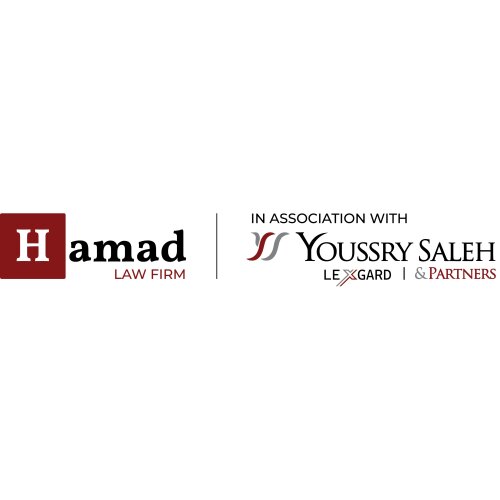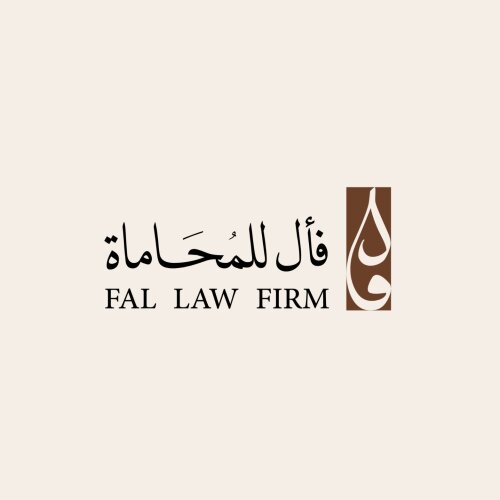Best Corporate & Commercial Lawyers in Riyadh
Share your needs with us, get contacted by law firms.
Free. Takes 2 min.
List of the best lawyers in Riyadh, Saudi Arabia

About Corporate & Commercial Law in Riyadh, Saudi Arabia
Corporate & commercial law in Riyadh covers a wide range of legal matters related to businesses and commercial transactions. Riyadh, as the capital city, is a central hub for both national and international companies operating in Saudi Arabia. This area of law governs how businesses are formed, structured, managed, and dissolved. It also encompasses regulations related to contracts, mergers and acquisitions, joint ventures, foreign investment, agency, and distribution agreements, among others. The legal environment in Riyadh reflects both traditional Shariah principles and evolving regulations designed to encourage economic diversification and foreign participation in line with Saudi Vision 2030.
Why You May Need a Lawyer
Seeking legal guidance in corporate & commercial matters is vital due to the complex and evolving landscape of rules and regulations in Riyadh. Common scenarios where a lawyer’s assistance is important include:
- Establishing a new business entity or branch office
- Drafting, reviewing, or negotiating commercial contracts
- Addressing regulatory compliance with local authorities
- Pursuing mergers, acquisitions, or joint ventures
- Navigating foreign investment rules
- Resolving business disputes, either through litigation or arbitration
- Handling company restructuring or liquidation
- Protecting intellectual property rights
- Ensuring employment and labor law compliance
Engaging a lawyer early can help prevent potential legal challenges, minimize business risks, and ensure compliance with local laws.
Local Laws Overview
Riyadh operates under Saudi Arabia’s legal framework, which blends Islamic Shariah law with modern commercial and corporate statutes. Commercial matters are regulated by several key pieces of legislation, including:
- The Companies Law, which governs company formation, structure, and operations
- The Foreign Investment Law, setting out requirements for non-Saudi investors
- The Commercial Agencies Law
- The Insolvency Law, addressing company restructuring and bankruptcy
- The Competition Law and its regulations
- The e-Commerce Law and intellectual property statutes
Regulatory bodies such as the Saudi Ministry of Commerce and the General Authority for Small and Medium Enterprises (Monsha’at) oversee compliance and implementation. Commercial dispute resolution may occur through local courts or alternative means such as arbitration. There is a strong focus on transparency, anti-corruption measures, and protection for investors, both domestic and foreign. However, local customs, business culture, and language must be carefully navigated, making expert legal counsel essential.
Frequently Asked Questions
What are the main types of business entities available for formation in Riyadh?
The most common corporate structures include limited liability company (LLC), joint stock company (JSC), branch of a foreign company, and sole proprietorship. Each has its own formation, operational, and reporting requirements.
Can a foreigner own 100 percent of a business in Riyadh?
Yes, in many sectors foreigners are now allowed 100 percent ownership, subject to licensing by the Ministry of Investment (MISA) and meeting sector-specific requirements. Some sectors still have restrictions or require a Saudi partner.
Is it necessary to have a local sponsor to open a business in Riyadh?
While many sectors have been opened to full foreign ownership, some industries require a Saudi partner or sponsor. Legal advice is essential to assess the requirements for your sector.
What are the key requirements for drafting valid contracts in Saudi Arabia?
Contracts must comply with Shariah principles and local laws. Written contracts should clearly state the rights and obligations of each party, be free from uncertainty, and often be in Arabic or accompanied by a certified Arabic translation.
What is the process for resolving commercial disputes in Riyadh?
Disputes can be resolved through local courts, specialized commercial courts, or alternative dispute resolution such as arbitration. Arbitration is increasingly common in complex or international matters.
How are mergers and acquisitions handled in Saudi Arabia?
Mergers and acquisitions involve regulatory approvals, due diligence, and often require public disclosures for joint stock companies. The process is regulated by the Capital Market Authority and Ministry of Commerce, among others.
Are there any restrictions on repatriating profits for foreign investors?
Generally, profits can be transferred abroad after meeting tax and Zakat obligations and other regulatory requirements. Banking and foreign currency regulations may also apply.
What are the main labor law considerations for companies?
Employment relationships are governed by the Saudi Labor Law, which sets requirements for contracts, working conditions, Saudization quotas, dismissal procedures, and end-of-service benefits.
How is intellectual property protected in Saudi Arabia?
The Saudi Authority for Intellectual Property oversees the registration and protection of trademarks, copyrights, and patents. Enforcement mechanisms are available but can require local legal expertise.
What are the compliance requirements for companies operating in Riyadh?
Businesses must comply with annual reporting, tax and Zakat filings, Saudization and employment regulations, anti-money laundering laws, and any sector-specific regulations. Non-compliance can result in penalties or license suspension.
Additional Resources
If you need more information or support regarding corporate & commercial legal matters in Riyadh, consider the following resources:
- Saudi Ministry of Commerce
- Ministry of Investment (MISA)
- Saudi Authority for Intellectual Property
- Capital Market Authority
- General Authority for Small and Medium Enterprises (Monsha’at)
- Council of Saudi Chambers
- Riyadh Chamber of Commerce and Industry
These organizations offer guidance, regulatory updates, and business services. For legal representation or advice, it is best to engage with a reputable law firm specializing in corporate & commercial law.
Next Steps
If you require legal assistance in a corporate or commercial matter in Riyadh, start by:
- Clearly defining your issue or business goal
- Gathering relevant documents and details
- Contacting a reputable law firm or legal advisor with expertise in corporate & commercial law
- Confirming the lawyer’s experience dealing with similar matters and their familiarity with Saudi regulations
- Requesting a consultation to understand your rights, obligations, and best course of action
Taking these steps helps ensure that your business is legally compliant and protected in Riyadh’s dynamic commercial environment.
Lawzana helps you find the best lawyers and law firms in Riyadh through a curated and pre-screened list of qualified legal professionals. Our platform offers rankings and detailed profiles of attorneys and law firms, allowing you to compare based on practice areas, including Corporate & Commercial, experience, and client feedback.
Each profile includes a description of the firm's areas of practice, client reviews, team members and partners, year of establishment, spoken languages, office locations, contact information, social media presence, and any published articles or resources. Most firms on our platform speak English and are experienced in both local and international legal matters.
Get a quote from top-rated law firms in Riyadh, Saudi Arabia — quickly, securely, and without unnecessary hassle.
Disclaimer:
The information provided on this page is for general informational purposes only and does not constitute legal advice. While we strive to ensure the accuracy and relevance of the content, legal information may change over time, and interpretations of the law can vary. You should always consult with a qualified legal professional for advice specific to your situation.
We disclaim all liability for actions taken or not taken based on the content of this page. If you believe any information is incorrect or outdated, please contact us, and we will review and update it where appropriate.
Browse corporate & commercial law firms by service in Riyadh, Saudi Arabia
Riyadh, Saudi Arabia Attorneys in related practice areas.
















